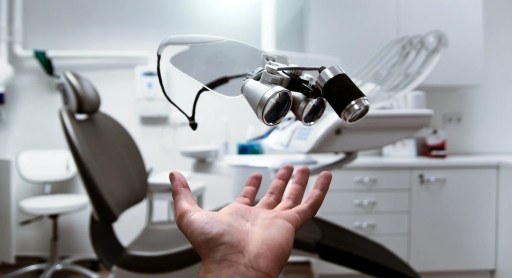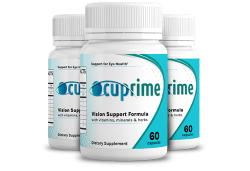Having optimal vision is a crucial aspect of our overall wellbeing. Eyes are one of our primary sensory organs, and their health significantly affects our day-to-day activities. This article will shed light on how to keep eyes healthy by discussing preventive measures, habits, nutrition, and eye care routines.
The Importance of Eye Health
Before delving into the details, it’s important to appreciate why maintaining eye health is vital. Your eyes are not only windows to the world but also give a glimpse into your overall health. Many systemic diseases like diabetes and hypertension may first show signs in the eyes. Hence, keeping your eyes healthy is not just about vision—it’s about whole-body wellness.
Regular Eye Checkups: Your First Line of Defense

When considering how to keep eyes healthy, routine checkups top the list. Eye examinations aren’t just for those with vision problems. They’re for everyone. Regular checkups allow early detection and management of potential problems.
Consider having an eye check-up at least once every two years. If you’re over 40 or have a family history of eye disease, consider yearly examinations. This frequency increases your chances of catching any potential issues early.
Understand Your Family’s Eye Health History
Understanding your family’s eye health history is essential. Many eye conditions, such as glaucoma and age-related macular degeneration, are hereditary. Knowledge about your family’s history can alert your doctor to any potential risks, allowing for early detection and treatment.
Protection Against the Sun
Direct sunlight exposure can damage your eyes. UV rays from the sun can cause conditions like cataracts and macular degeneration. Hence, shielding your eyes from the sun is a key step in preserving their health.
Invest in sunglasses that block 99 to 100% of both UVA and UVB radiation. Remember, the price tag doesn’t determine the level of protection. Always check the label to ensure they provide the necessary protection.

Healthy Habits for Healthy Eyes
Adopting specific habits significantly contributes to eye health. Creating an environment that supports and enhances your vision is one way to maintain good eye health. Here’s a more in-depth look into how to keep eyes healthy with lifestyle adjustments.
Quit Smoking: Clear the Air for Clear Vision
Smoking is an infamous habit, known for its damaging effects on overall health. Its impact on eye health, however, is often overlooked. Smoking increases the risk of cataracts, age-related macular degeneration, uveitis, and other eye conditions. It also exacerbates dry eyes, a common and uncomfortable condition.
Why does smoking affect the eyes? The answer lies in its composition. Cigarette smoke contains toxins that can irritate the eyes and potentially cause harm at the cellular level.
Therefore, one of the best decisions you can make for your eyes and overall health is to quit smoking. If you find it difficult, remember you’re not alone. Many resources can help you on your journey to becoming smoke-free, including apps, support groups, and medical assistance.
Limit Screen Time: Give Your Eyes a Break
We live in a digital world where screens have become an integral part of our lives. From work to socializing, screens are involved in most of our daily activities. However, extended screen time can cause digital eye strain, leading to dry eyes, fatigue, blurred vision, and headaches.
Digital eye strain occurs because our eyes have to work harder when looking at digital screens due to the pixelated images they project. Additionally, we often forget to blink while focusing on screens, which can lead to dryness and irritation.
To help alleviate this, implement the 20-20-20 rule: for every 20 minutes of screen time, take a 20-second break and focus your gaze on something at least 20 feet away. This change in focus allows your eyes to rest and reduce fatigue.
Investing in a blue light filter for your screen or wearing blue light glasses can also help protect your eyes from the potentially harmful effects of prolonged exposure to blue light from screens.
Exercise Regularly: Keep the Blood Flowing
Regular physical exercise isn’t just for staying in shape—it’s also for keeping your eyes in top condition. Exercise improves blood circulation, which increases oxygen levels to the eyes and aids in the removal of toxins. This enhanced blood circulation can prevent conditions such as glaucoma and age-related macular degeneration.
Exercises don’t have to be exhaustive. A simple walk, cycling, yoga, or any form of physical activity that increases your heart rate can be beneficial for your eyes.
Nutrition: Fuel for Eye Health
A balanced diet is key to keeping your eyes healthy. Nutritious food provides necessary vitamins and minerals that help maintain eye function and ward off age-related vision problems. Let’s delve deeper into the types of food that promote eye health.
Fruits and Vegetables: Colors for Your Eyes
Carrots, rich in vitamin A and beta carotene, are known for their benefits to eye health. However, they are not alone in the realm of eye-friendly foods. Many other fruits and vegetables contribute to eye health.
Leafy green veggies like spinach, kale, and collard greens are packed with lutein and zeaxanthin. These powerful antioxidants help protect your eyes from harmful high-energy light waves like ultraviolet rays from the sun.
Citrus fruits, such as oranges, lemons, and grapefruits, are high in vitamin C, a powerful antioxidant. Vitamin C helps the body form and maintain connective tissue, including collagen found in the cornea of the eye.
Fish: Dive Deep for Eye Health
Fish, especially fatty fish like salmon, tuna, and sardines, are rich in omega-3 fatty acids. These essential fats are crucial for the health of the macula—the part of the eye responsible for central vision. An omega-3 fatty acid, DHA, provides structural support to cell membranes and is recommended for dry eyes, macular degeneration, and sight preservation.
Nuts and Seeds: Snack for Sight
Nuts and seeds are an excellent source of vitamin E, an antioxidant that protects cells in the eyes from free radicals. Free radicals break down healthy tissue, and by combating their effects, vitamin E helps to maintain eye health.
Almonds, peanuts, and sunflower seeds are excellent choices to include in your diet. Flaxseeds and chia seeds, in addition to being rich in vitamin E, also contain omega-3 fatty acids, an essential nutrient for eye health. Incorporating a handful of these nuts and seeds into your diet can significantly contribute to maintaining eye health.
Hygiene and Eye Care: The Basic Essentials
Maintaining proper hygiene is crucial for eye health. Improper habits can lead to infections and other eye conditions. Here’s how to keep eyes healthy with simple hygiene practices and beneficial eye care routines.
Contact Lens Care: Handle with Care
Contact lenses can provide the freedom from glasses that many people seek. However, they require careful handling to keep your eyes healthy. Improper use can lead to severe eye infections, which, in extreme cases, can cause vision loss.
Before touching your lenses, always wash your hands with soap and water. Rinse thoroughly and dry with a lint-free towel to ensure no residue is left behind. Make sure your contact lenses are properly cleaned and stored in their respective cases when not in use.
Remember, never sleep with your contact lenses unless specified by your eye care provider. Also, it’s crucial to follow the recommended replacement schedule for your lenses—be it daily, bi-weekly, or monthly.
Makeup and Your Eyes: Paint but Protect

Makeup enhances our features, but when it comes to the eyes, caution is necessary. The sensitive nature of our eyes means that the wrong practices can lead to irritation or infections.
Always ensure that your makeup applicators are clean before use and never share makeup—especially eye makeup. Bacteria can quickly grow in cosmetic products and sharing can lead to cross-contamination.
Before bedtime, no matter how tired you might be, always remove your eye makeup. Sleeping with makeup can cause particles to get into your eyes, leading to irritation or infection. Regularly replace your makeup, ideally every three months, to avoid bacterial growth and ensure its efficacy.
Supplements: Boosting Your Eye Health
A well-balanced diet is the most effective way to get the nutrients your eyes need. However, if your diet lacks certain nutrients, or you have a medical condition that affects nutrient absorption, supplements can help fill in the gaps.
Ocuprime: A Supplement for Sight
Ocuprime is an example of a supplement designed to support eye health. It’s formulated with ingredients specifically chosen to support visual function and protect the eyes.
Its key ingredients include:
- Lutein and Zeaxanthin: These are carotenoids found in high concentrations in the eye. They act as antioxidants, protecting the eyes from harmful free radicals.
- Omega-3 fatty acids: Essential fats that help maintain the health of the macula and retina, crucial for sharp vision.
- Vitamin A, C, and E: A combination of vitamins necessary for maintaining the overall health of the eye, reducing the risk of age-related macular degeneration and cataracts.
By incorporating Ocuprime or similar supplements into your routine, you can further fortify your eyes against age-related conditions. However, always consult your healthcare provider before starting any new supplement regimen.

The Takeaway: How to Keep Eyes Healthy
Knowing how to keep eyes healthy is critical for overall health and wellness. Regular checkups, understanding your family history, protecting your eyes from the sun, adopting healthy habits, and consuming a nutrient-rich diet are all significant steps towards optimal eye health.
By implementing these tips, you’re taking proactive steps towards maintaining your vision and health. After all, your eyes aren’t just windows to the world—they’re windows to your wellbeing. So let’s treat them with the care they deserve.
In the grand scheme of things, eye health might seem like a small component. But it’s one with substantial ripple effects across our lives. Let’s keep those ripples positive by prioritizing eye health. Your future self will thank you.






Leave a Reply
You must be logged in to post a comment.